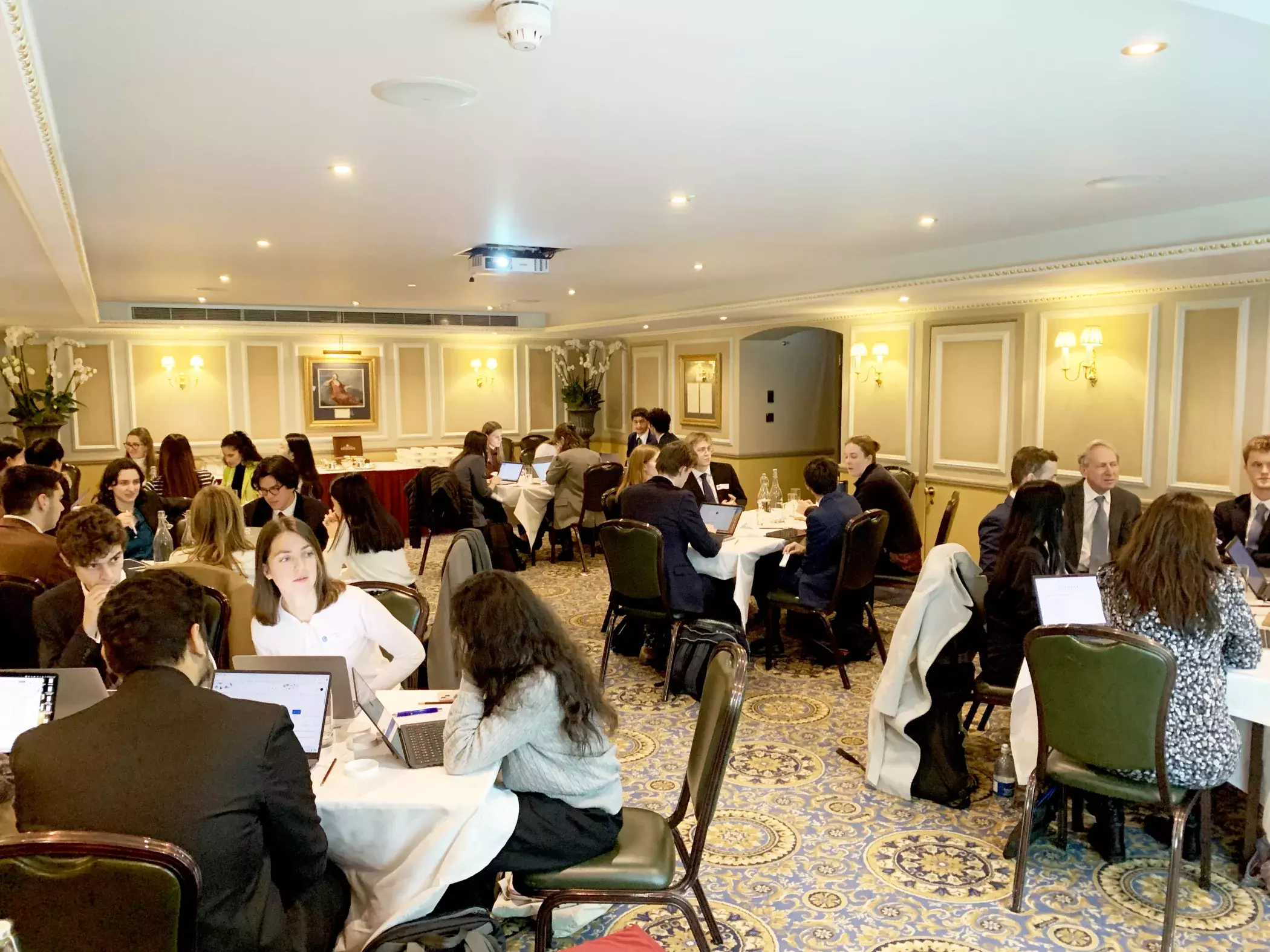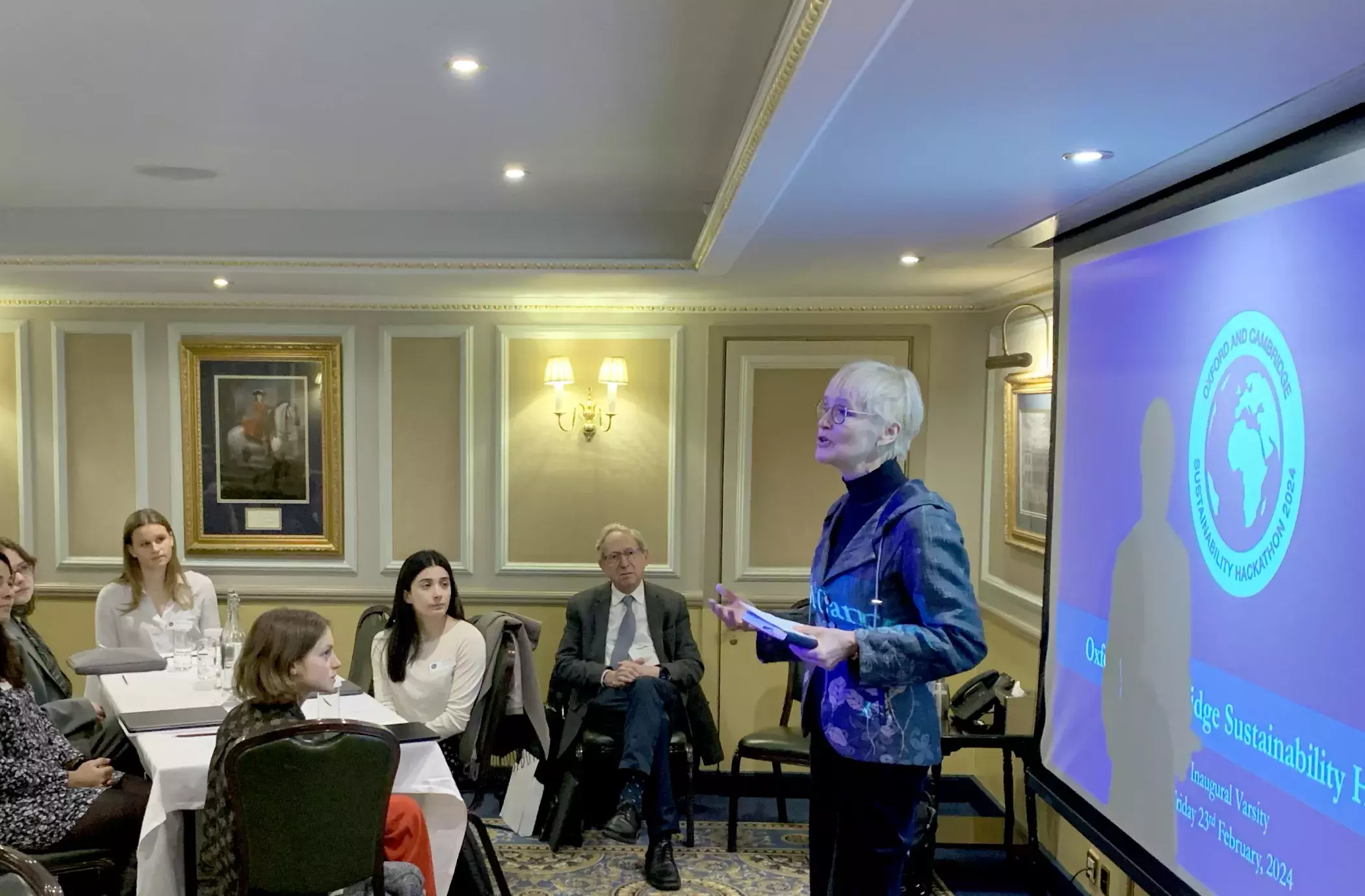Creativity for a Greener Future: Inaugural Oxford and Cambridge Sustainability Hackathon

The inaugural Oxford and Cambridge Sustainability Hackathon was a thrilling journey developed by two friends. One, and MSc from the University of Oxford's Smith School and the other studying at the University of Cambridge. Our mission? To unite students from two renowned universities in a collaborative effort to address sustainability challenges with critical thinking and creativity.
We kicked off the day with inspiring words by Prof Mette Morsing and Prof Paul Stein, which set the tone for the day. As participants delved into a day of exploration and problem-solving, they defined a sustainable issue they would focus on, and worked through several structured stages aiming to develop a solution which they would later present to the group.
The highlight of the day was brought by the student presentations. Not only did participants come from an array of academic backgrounds like politics, biology, geography, psychology, earth science, but they also came from different academic levels, spanning from first-year undergraduates to PhD students. From optimising household energy use to revolutionising agriculture, the innovative ideas were as diverse as the participants themselves.

Following the participant presentations, a panel session featuring esteemed sustainability experts offered invaluable insights into the intricacies of sustainable transitions. Ruth Herbert, Anum Sheikh, Cat Roehricht, and Mike Bately brought a wealth of experience and diverse perspectives to the table, from carbon sequestration and storage to policy implementation, and from storytelling behind net zero to sustainable finance. Their varied perspectives enriched the discussion, providing participants with a deeper understanding of the multifaceted nature of sustainability challenges.
I’m already excited about next year's event and can't wait to see how it grows and evolves.
I would like to thank the Oxford Smith School, the Department of Materials Science and Metallurgy at the University of Cambridge, and all the sustainability experts who generously supported this event. And of course, a huge thank you to all the participants for their enthusiasm and inspiring ideas.
Written by MSc student Isobel Laughton
